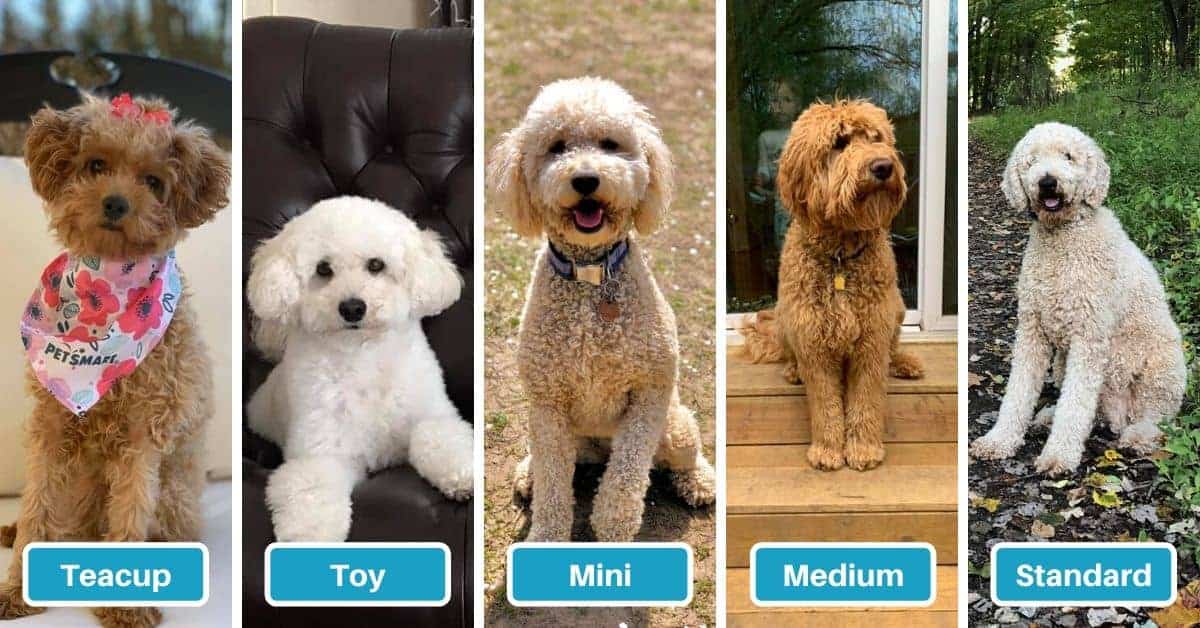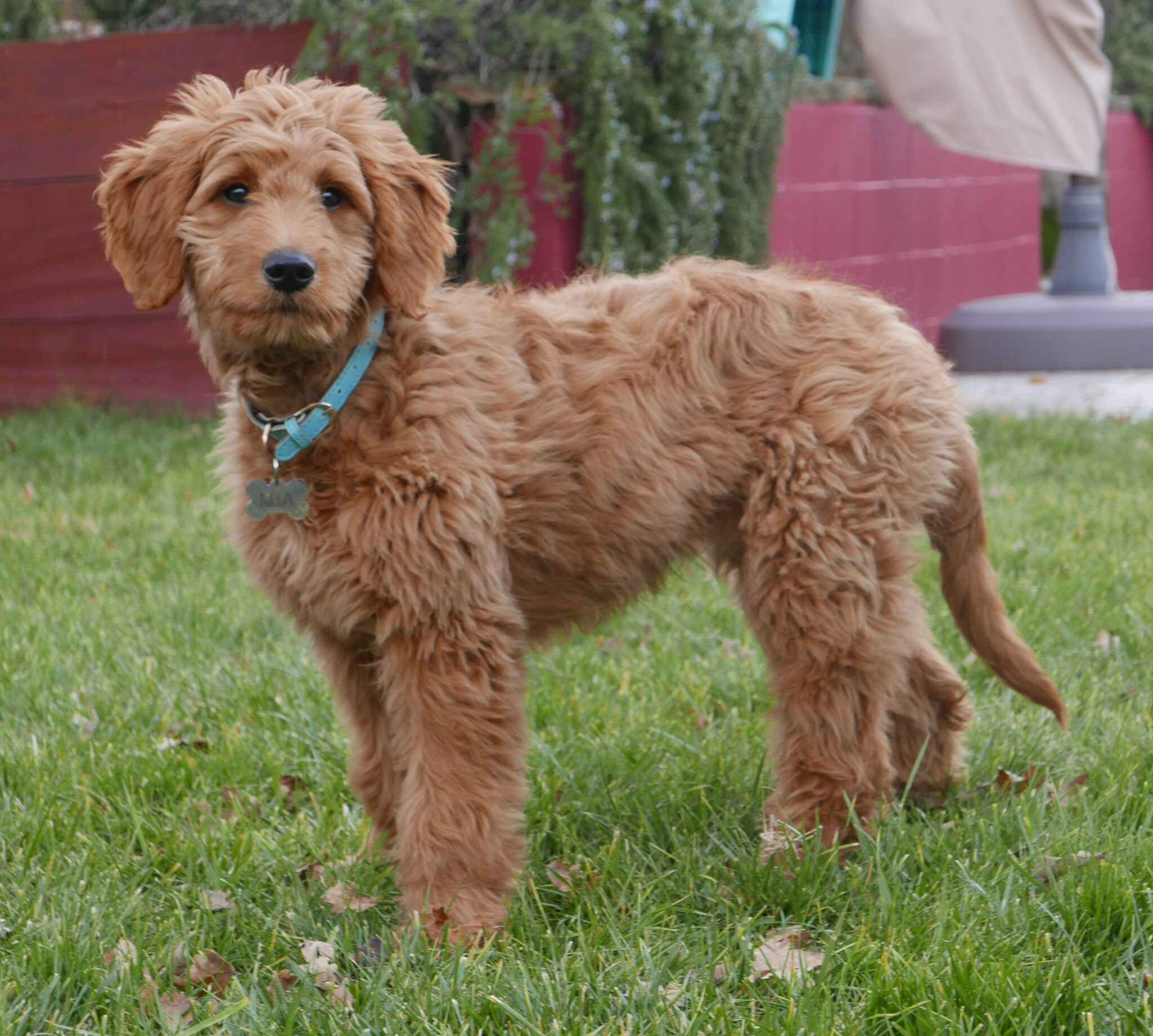Curious to know how long a Mini Goldendoodle can live? Well, you’re in the right place! 🐶 In this article, we’ll explore the lifespan of these adorable furry friends and provide you with some valuable insights. So, let’s dive right in!
If you’re a proud owner or thinking of getting a Mini Goldendoodle, it’s natural to wonder about their lifespan. You may be asking yourself, “How long does a Mini Goldendoodle live?” Well, my young friend, that’s exactly what we’re here to find out.
When it comes to the lifespan of a Mini Goldendoodle, it’s important to consider various factors. These cute pooches typically live between 10 and 15 years, but remember, every dog is unique, just like you! So let’s delve into what influences their lifespan and how we can ensure they live their best doggy lives. 🌟
A Mini Goldendoodle typically has a lifespan of 10 to 15 years. The longevity of a Mini Goldendoodle’s life depends on various factors such as genetics, overall health, and proper care. Regular exercise, a balanced diet, and routine veterinary check-ups can help ensure a long and healthy life for your furry friend. Remember to provide them with love and attention, as their well-being contributes to their lifespan.

Table of Contents
- How Long Does a Mini Goldendoodle Live? Exploring the Lifespan of this Adorable Mixed Breed
- Factors Influencing the Lifespan of a Mini Goldendoodle
- Key Takeaways: How Long Does a Mini Goldendoodle Live?
- Frequently Asked Questions
- What is the average lifespan of a Mini Goldendoodle?
- What can I do to promote a longer lifespan for my Mini Goldendoodle?
- Are there any common health conditions that Mini Goldendoodles are prone to?
- Can the lifespan of a Mini Goldendoodle be influenced by genetics?
- How can I ensure the longevity of my Mini Goldendoodle?
- How Long Do Goldendoodles Live? (Standard And Mini)
- Summary
How Long Does a Mini Goldendoodle Live? Exploring the Lifespan of this Adorable Mixed Breed
The Mini Goldendoodle is a popular hybrid dog breed that is a cross between a Golden Retriever and a Miniature Poodle. These adorable dogs are known for their friendly and affectionate nature, as well as their hypoallergenic coat. If you are considering getting a Mini Goldendoodle, one important factor to consider is their lifespan. In this article, we will delve into the factors that can influence the lifespan of a Mini Goldendoodle to give you a better understanding of how long you can expect your furry friend to be by your side.
Factors Influencing the Lifespan of a Mini Goldendoodle
While it is impossible to predict the exact lifespan of an individual dog, several factors can influence the average lifespan of the Mini Goldendoodle breed. These factors include genetics, diet, exercise, healthcare, and overall lifestyle. By understanding these factors and taking appropriate measures, you can help ensure that your Mini Goldendoodle lives a long and healthy life.
Genetics
Genetics play a crucial role in determining the lifespan of a Mini Goldendoodle. While hybrids like the Mini Goldendoodle are generally considered to be healthier than purebred dogs due to genetic diversity, they can still be prone to certain health issues from their parent breeds. Some common health concerns in Mini Goldendoodles include hip dysplasia, elbow dysplasia, and certain genetic disorders like progressive retinal atrophy. It is important to choose a reputable breeder who conducts health testing on their parent dogs to minimize the risk of inherited health conditions.
Additionally, it is important to be aware that Mini Goldendoodles can inherit the health conditions that are common in Golden Retrievers and Miniature Poodles. Regular veterinary check-ups, a nutritious diet, and providing a safe and stimulating environment can help minimize the impact of genetic health conditions and promote a longer lifespan for your Mini Goldendoodle.
Diet and Exercise
A well-balanced diet and regular exercise are key to ensuring the longevity and overall health of your Mini Goldendoodle. These dogs are active and energetic by nature and require regular exercise to stay fit and mentally stimulated. A lack of exercise can lead to obesity, which can contribute to various health issues and reduce their lifespan.
Feeding your Mini Goldendoodle a high-quality diet that is appropriate for their age, size, and activity level is also crucial. A diet consisting of nutritious ingredients provides the necessary vitamins, minerals, and antioxidants to support their overall health and boost their immune system. Regular veterinary check-ups can help you monitor your Mini Goldendoodle’s weight and ensure that their diet and exercise routine are suitable for their specific needs.
Healthcare and Lifespan
Proper healthcare plays a significant role in determining the lifespan of any dog, including Mini Goldendoodles. Regular visits to the veterinarian for vaccinations, preventive treatments for fleas, ticks, and heartworms, as well as routine dental care, can help detect and prevent potential health problems before they become serious. Early detection and treatment of health issues can greatly impact the overall lifespan and well-being of your Mini Goldendoodle. Additionally, it is important to stay up to date with vaccinations and follow your veterinarian’s recommendations for preventive care.
In conclusion, the lifespan of a Mini Goldendoodle can vary depending on various factors such as genetics, diet, exercise, healthcare, and overall lifestyle. By providing a nurturing environment, a balanced diet, regular exercise, and proper healthcare, you can help ensure that your Mini Goldendoodle lives a long and healthy life by your side.
Key Takeaways: How Long Does a Mini Goldendoodle Live?
- A Mini Goldendoodle’s lifespan typically ranges from 10 to 15 years.
- Proper care, including a balanced diet and regular exercise, can help extend a Mini Goldendoodle’s lifespan.
- Genetics also play a role in determining how long a Mini Goldendoodle will live.
- Regular veterinary check-ups and vaccinations are essential for maintaining a Mini Goldendoodle’s health and longevity.
- Providing a safe and nurturing environment can contribute to a Mini Goldendoodle’s overall well-being and lifespan.
Frequently Asked Questions
What is the average lifespan of a Mini Goldendoodle?
On average, a Mini Goldendoodle can live between 10 to 15 years. The lifespan of a Mini Goldendoodle can vary depending on various factors such as genetics, diet, exercise, and overall health care. By providing them with a loving home, regular veterinary check-ups, and a balanced diet, you can help ensure that your Mini Goldendoodle lives a long and healthy life.
It’s important to note that individual Mini Goldendoodles may have different lifespans. Some may live longer, while others may have shorter lifespans. Additionally, certain health issues such as genetic disorders or diseases can impact their lifespan. By staying informed and proactive about their health, you can help maximize their lifespan and quality of life.
What can I do to promote a longer lifespan for my Mini Goldendoodle?
To promote a longer lifespan for your Mini Goldendoodle, there are several steps you can take. Firstly, providing a balanced and nutritious diet is essential. Consult with your veterinarian to determine the best type and amount of food for your dog’s specific needs. Regular exercise is also crucial to keep them physically fit and mentally stimulated.
In addition to diet and exercise, regular veterinary check-ups are important. These check-ups can help detect any potential health issues early on, allowing for prompt treatment and management. Keeping up with vaccinations, preventive medications, and dental care are also crucial to maintaining their overall health. Finally, providing a loving and stimulating environment, along with plenty of mental and social stimulation, can contribute to their overall well-being and longevity.
Are there any common health conditions that Mini Goldendoodles are prone to?
While Mini Goldendoodles are generally considered healthy dogs, there are a few health conditions that they may be prone to. These include hip dysplasia, which is a common joint disorder, and progressive retinal atrophy, which can lead to vision loss over time. Additionally, they may be susceptible to certain genetic disorders inherited from their parent breeds, such as heart conditions or allergies.
Regular veterinary check-ups and genetic testing can help identify any potential health issues early on. By being proactive and providing appropriate care, such as joint supplements or specialized diets if needed, you can help manage and improve your Mini Goldendoodle’s health and potentially minimize the impact of any genetic predispositions.
Can the lifespan of a Mini Goldendoodle be influenced by genetics?
Yes, genetics can play a role in the lifespan of a Mini Goldendoodle. The lifespan of a Mini Goldendoodle can be influenced by the genes inherited from its parent breeds, the Miniature Poodle and the Golden Retriever. Both of these breeds have average lifespans of around 10 to 12 years. By breeding from healthy parent dogs with longer lifespans, there is a higher likelihood of producing Mini Goldendoodles with longer lifespans as well.
However, it’s important to note that genetics are not the sole determining factor. Environmental factors, such as diet, exercise, and overall health care, also play a significant role in their lifespan. By providing proper care and attention, you can help ensure that your Mini Goldendoodle lives a long and healthy life, regardless of its genetic background.
How can I ensure the longevity of my Mini Goldendoodle?
To ensure the longevity of your Mini Goldendoodle, there are several steps you can take. Firstly, provide them with a well-balanced diet that meets their nutritional needs. Consult with your veterinarian to determine the best food options for your dog. Regular exercise is also important to keep them physically fit and mentally stimulated.
Regular veterinary check-ups are crucial to monitor their health and catch any potential issues early on. Vaccinations, preventive medications, and dental care should also be maintained. Additionally, providing a safe and loving environment, along with mental and social stimulation, can contribute to their overall well-being and longevity. Lastly, maintaining a stress-free lifestyle and minimizing exposure to harmful substances or environments can help promote their longevity.
How Long Do Goldendoodles Live? (Standard And Mini)
Summary
So, to sum it all up, we’ve learned a lot about the lifespan of a Mini Goldendoodle. They usually live to be around 10 to 15 years old, which is a pretty good amount of time.
We found out that there are a few things that can affect how long they live, like genetics, diet, exercise, and regular check-ups with the vet. Taking good care of them can help them live a longer, healthier life.
Remember, Mini Goldendoodles are wonderful companions who bring so much joy to our lives. It’s important to cherish every moment we have with them and give them all the love and care they deserve. So, enjoy your time with your furry friend and make the most of the precious years you’ll have together!


